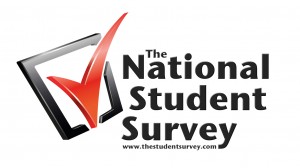Ok, now I’ve hopefully got some attention … (honestly, this post doesn’t take too long to get to the ‘free stuff’ bit).
Perhaps one of less noticed, but still in some ways important, elements of the huge changes in the English higher education sector over the last four years has been the changes for some long-established sector agencies. QAA lost what was in effect its role as the lead national agency in England for academic quality and standards, and has reinvented itself (including a very significant slimming down) as a membership organisation. The Higher Education Academy, Equality Challenge Unit and Leadership Foundation for Higher Education combined forces to become AdvanceHE.
So what?
Good question. One of the things it has meant is that QAA and AdvanceHE have now put huge amounts of their resources behind what amounts to a paywall – if your university’s not a member you’re not getting in. The good news for Newcastle staff is that the University is a signed-up member of both QAA and AdvanceHE, so you can access both organisation’s resources using your Newcastle email address.
So why would you sign up?
Well QAA’s an interesting one. There’s a range of membership services, including both resources (for example some Advice on Digital Assessment Security written by a group that LTDS was a member of) and events (including a webinar in July at which LTDS presented).
The bit that’s interesting is that having become a membership organisation there’s been a bit of a shift in terms of the kind of things the Agency is doing. The five themes of the membership programme for 2021-22 (https://www.qaa.ac.uk/membership/what-we-are-delivering-for-members-in-2021-22 ) are: the future of digital and blended learning; creating inclusive learning communities; global engagement and TNE; evaluation and data-based decision making; and securing academic standards.
So a lot of the kind of thing you might expect QAA to do, but quite a lot that might make you think ‘I didn’t’ know QAA were interested in that’. Some of this is open access; other areas you’ll need to register to get access to (but it doesn’t take long – the form is at https://www.qaa.ac.uk//en/membership/resources/register and all you need is your NU email address).
There are a small number of QAA resources we don’t have access to (it’s like a gym with levels of membership, and we didn’t go for the maximalist option), but there’s still a lot of valuable stuff up there that you can access for free.
(And while I’m talking about QAA, one of its best kept secrets, at least this side of Hadrian’s Wall, is the great work QAA Scotland has been doing for years under its Enhancement Themes banner. There’s lots of interesting and valuable material on this website – https://www.enhancementthemes.ac.uk/. The current Enhancement Theme is Resilient Learning Communities, but past themes like Evidence for Enhancement and Student Transitions are well worth a look as well. And again, it’s all free).
It’s a similar deal with AdvanceHE. There’s a huge amount of valuable material available (and their Knowledge Hub database is a good way to access this), across lots of areas -including learning and teaching, but also around EDI as well as leadership and management. AdvanceHE’s programme for 2021-22 is available at https://www.advance-he.ac.uk/membership-2021-22/member-benefits .
Again all you need is your NU email address to access the site and its resources. One thing to look out for though is that while there’s a lot of things you can access for free, there’s also quite a bit of AdvanceHE activity (particularly events) that are chargeable. People at NU get a member’s rate, but there’s still a fee for quite a bit of what they’re offering.
So there’s a lot on offer. A lot of it supports areas that we’re strongly committed to as a University and as individuals. It’s worth a look. And (lots of it) is free.

